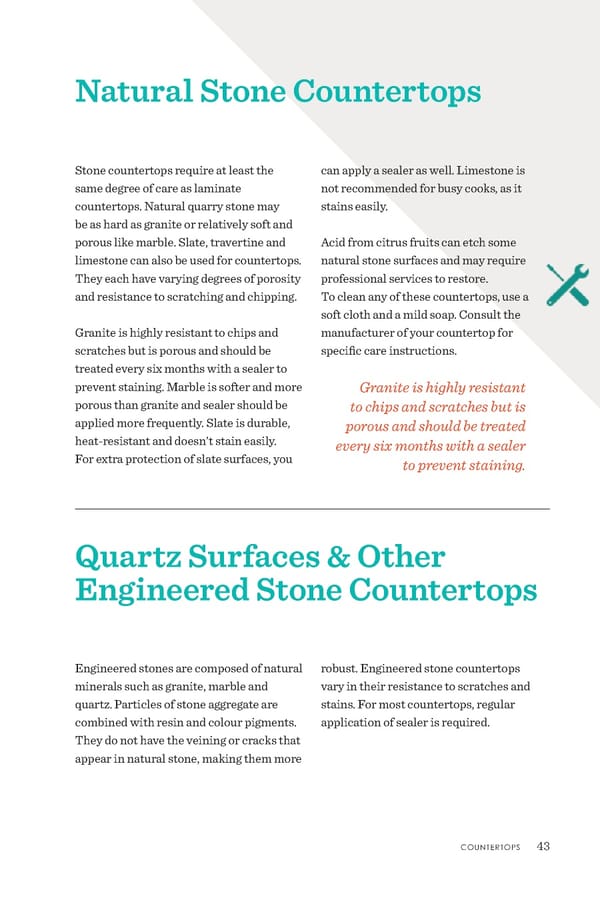Engineered stones are composed of natural minerals such as granite, marble and quartz. Particles of stone aggregate are combined with resin and colour pigments. They do not have the veining or cracks that appear in natural stone, making them more Stone countertops require at least the same degree of care as laminate countertops. Natural quarry stone may be as hard as granite or relatively soft and porous like marble. Slate, travertine and limestone can also be used for countertops. They each have varying degrees of porosity and resistance to scratching and chipping. Granite is highly resistant to chips and scratches but is porous and should be treated every six months with a sealer to prevent staining. Marble is softer and more porous than granite and sealer should be applied more frequently. Slate is durable, heat-resistant and doesn’t stain easily. For extra protection of slate surfaces, you robust. Engineered stone countertops vary in their resistance to scratches and stains. For most countertops, regular application of sealer is required. can apply a sealer as well. Limestone is not recommended for busy cooks, as it stains easily. Acid from citrus fruits can etch some natural stone surfaces and may require professional services to restore. To clean any of these countertops, use a soft cloth and a mild soap. Consult the manufacturer of your countertop for specific care instructions. Quartz Surfaces & Other Engineered Stone Countertops Natural Stone Countertops Granite is highly resistant to chips and scratches but is porous and should be treated every six months with a sealer to prevent staining. COUNTERTOPS 43
 ANHWP Care & Maintenance Guide 2022 Page 44 Page 46
ANHWP Care & Maintenance Guide 2022 Page 44 Page 46